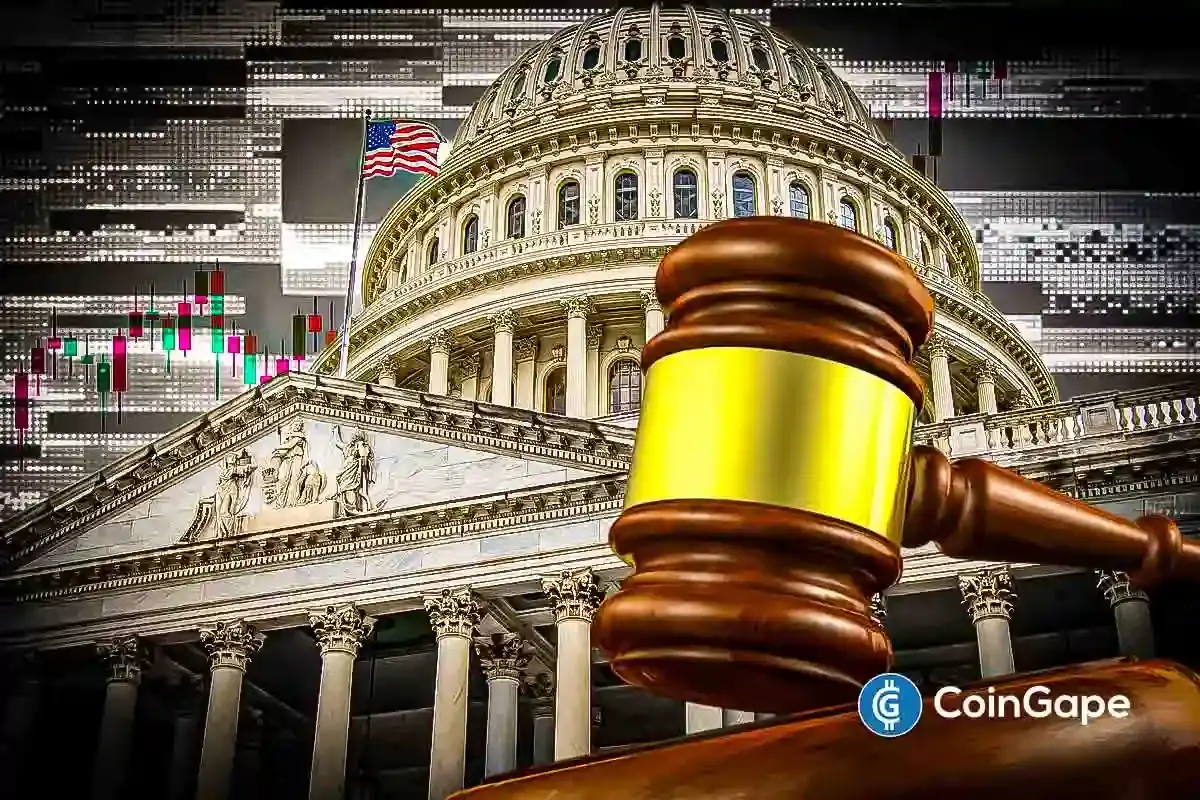Coinbase CLO Weaponizes Bump Stock Gun Case To Counter SEC

Highlights
- Coinbase CLO Paul Grewal referred to the bump stock gun case to counter the SEC's claims.
- He highlighted the abrupt shift in regulatory stance and the lack of defense opportunity for Americans.
- Elsewhere, the SEC dragged the Coinbase insider trading case into the Binance lawsuit.
Coinbase’s Chief Legal Officer, Paul Grewal, has taken a bold stance in the ongoing legal battle between Coinbase and the Securities and Exchange Commission (SEC). He drew parallels to a recent Supreme Court case involving bump stock guns to counter the SEC amid its several ongoing lawsuits against crypto industry participants.
Paul Grewal Firmly Counters SEC
In a statement on X platform, Grewal referenced an exchange between Justice Gorsuch and a government official regarding the bump stock gun case. Moreover, he highlighted the abrupt shift in government interpretation of a statute enacted in the 1930s.
The Coinbase CLO emphasized, “A statute enacted in the 1930s. The govt long taking the position that the statute didn’t apply. The govt then pulling a 180 without notice-and-comment rulemaking and saying the statute does in fact apply.” In addition, he underscored the lack of opportunity for affected individuals to defend themselves preemptively.
Grewal added, “Without warning, millions of Americans suddenly finding themselves law breakers. Their only way to defend themselves is as defendants in enforcement suits.” Drawing a connection to Coinbase’s legal battle with the SEC, Grewal pointed out similarities in the government’s approach. Furthermore, he questioned the lack of consistency and transparency in regulatory enforcement.
Furthermore, he raised concerns about legislative actions being undermined and urged for greater accountability and adherence to procedural fairness in regulatory matters. As the Coinbase vs SEC lawsuit escalates, Grewal’s strategic use of legal precedent highlights the complexities and challenges inherent in navigating the crypto regulatory landscape.
Also Read: Breaking: US SEC Files Coinbase Insider Case as Supplemental Authority in Binance Suit
SEC Drags Coinbase Into Binance Lawsuit
In a court filing submitted on March 4, the Securities and Exchange Commission (SEC) presented a notice of supplemental authority in the case of SEC v. Wahi, pertaining to the ongoing legal battle involving Binance Holdings. The case involves allegations against Coinbase’s former product manager Ishan Wahi, his brother Nikhil Wahi, and their associate Sameer Ramani for insider trading.
In a recent ruling by Judge Tana Lin, a default judgment was issued, affirming that the trading of specific cryptocurrency assets on a secondary market should be considered securities. This decision arose in light of the SEC’s argument that these crypto assets were originally offered and sold as investment contracts, meeting the criteria outlined in the Howey test.
The SEC further reinforced its stance by referencing a previous ruling by Judge Rakoff in the SEC lawsuit against Terraform Labs and Do Kwon. In that case, tokens such as LUNA and MIR were classified as securities, providing additional precedent to support the SEC’s argument regarding the nature of crypto assets traded on platforms.
In its pursuit to bolster its case against Binance, Binance.US, and CZ (Changpeng Zhao), the SEC’s legal team is utilizing these recent developments to counter motions seeking dismissal of the lawsuit. By asserting that secondary crypto sales should be recognized as securities, the SEC aims to strengthen its position in the ongoing legal battles against crypto exchanges.
Also Read: Coinbase Vs SEC: SEC Leverages New Ruling to Press Charges Against Coinbase
- Breaking: Michael Saylor’s Strategy Makes 100th Bitcoin Purchase, Buys 592 BTC as Market Struggles
- Satoshi-Era Whale Dumps $750M BTC as Hedge Funds Pull Out Billions in Bitcoin
- XRP Sees Largest Realized Loss Since 2022, History Points to Bullish Price Run: Report
- US Strike on Iran Possible Within Hours: Crypto Market on High Alert
- MetaSpace Will Take Its Top Web3 Gamers to Free Dubai Trip
- Top 4 Reasons Why Bitcoin Price Will Crash to $60k This Week
- COIN Stock Price Prediction: Will Coinbase Crash or Rally in Feb 2026?
- Shiba Inu Price Feb 2026: Will SHIB Rise Soon?
- Pi Network Price Prediction: How High Can Pi Coin Go?
- Dogecoin Price Prediction Feb 2026: Will DOGE Break $0.20 This month?
- XRP Price Prediction As SBI Introduces Tokenized Bonds With Crypto Rewards


















